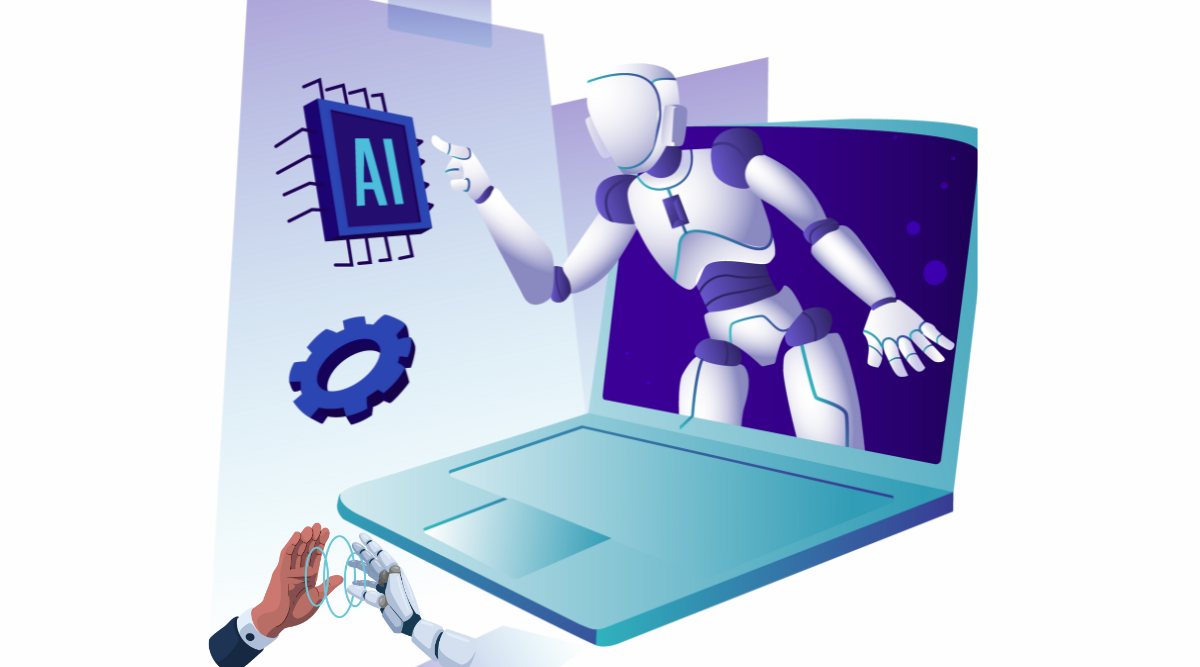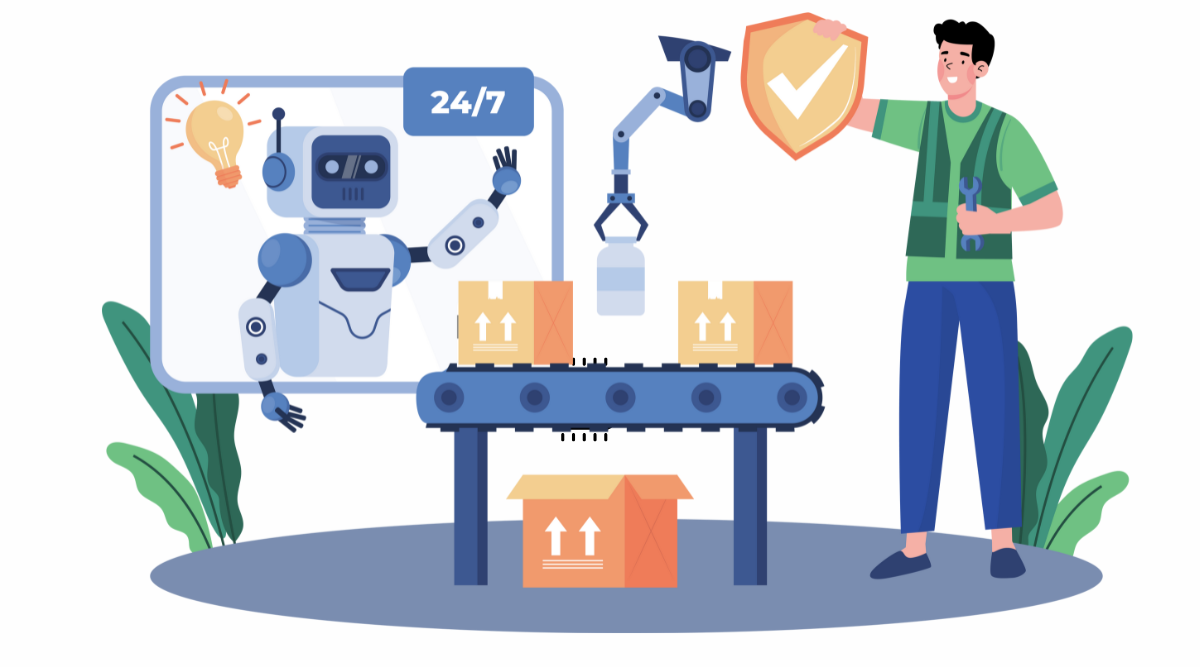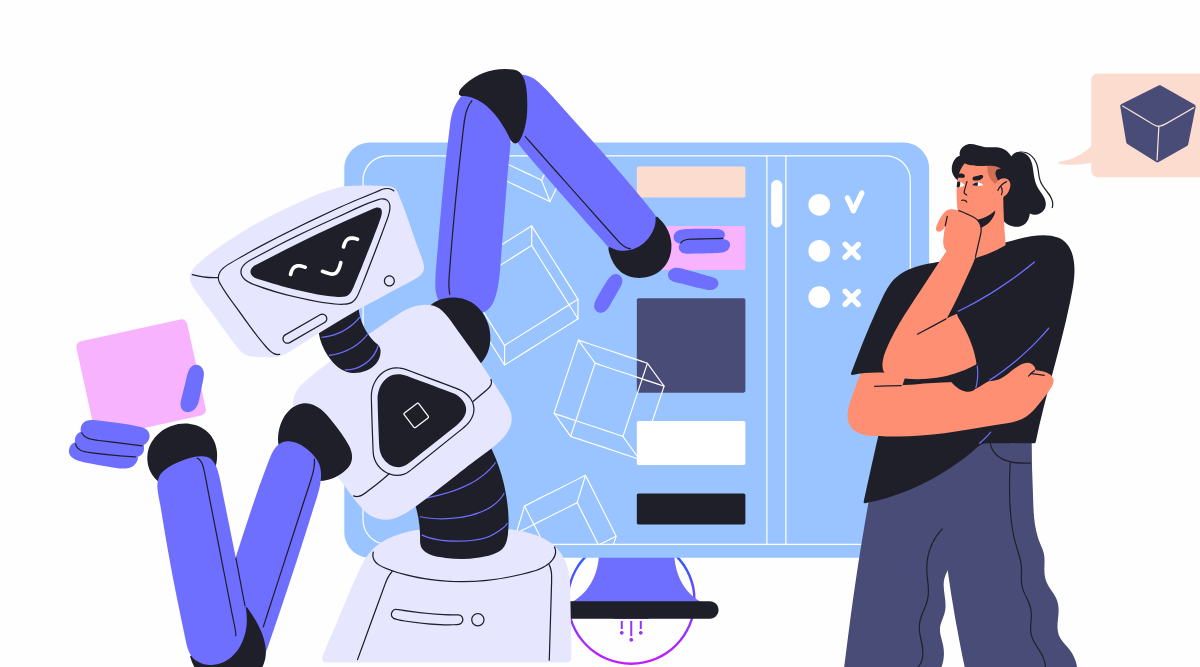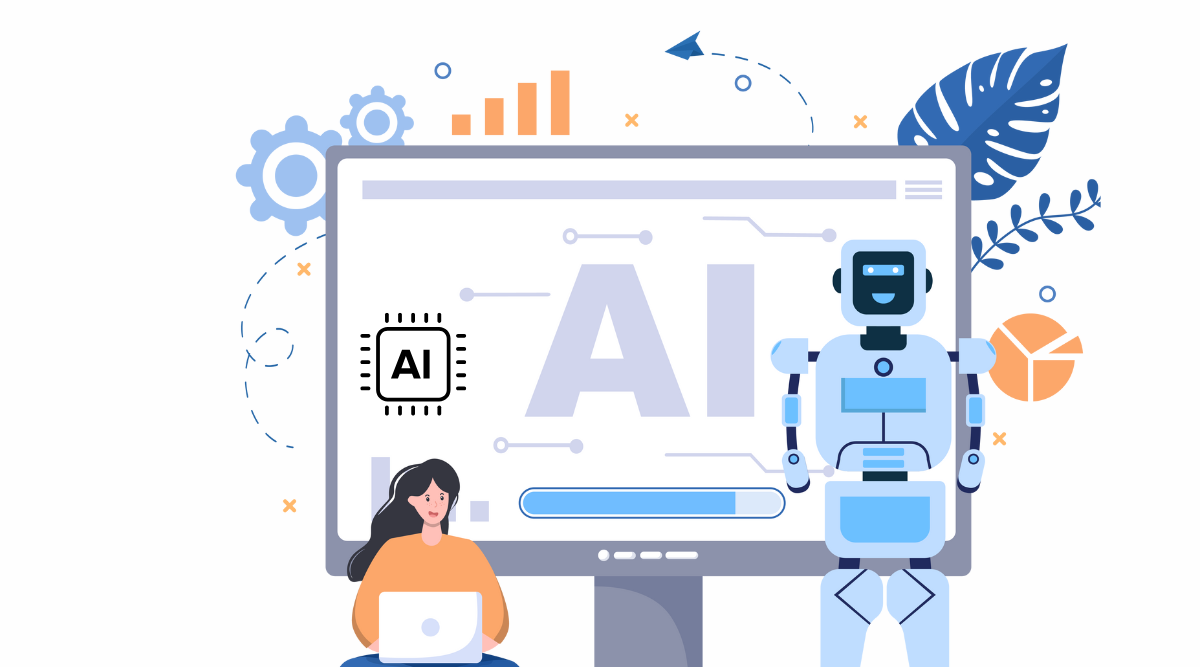Top AI Tools Revolutionizing B2B Prospecting in Modern Sales
Discover the best AI tools for B2B prospecting. Enhance your sales strategy with advanced technology in 2025.

In today's competitive business landscape, sales teams are constantly searching for innovative solutions to enhance their B2B prospecting efforts. As we approach 2025, artificial intelligence is becoming a crucial component of this strategy. With the rapid evolution of AI technology, sales professionals are discovering how these tools can redefine their approach, making the process more efficient and effective. This blog will explore the rise of AI in B2B sales prospecting, focusing on its benefits and the top tools that are transforming the industry.
The Rise of AI in B2B Sales Prospecting
The Shift from Traditional to AI-Enhanced Prospecting
The traditional methods of prospecting often involved labor-intensive tasks, such as manually sourcing leads and cold calling. While effective in its time, these techniques are no longer sufficient in an era where data and speed drive success. AI-enhanced prospecting represents a significant shift from these conventional methods, offering a smarter, data-driven approach to identifying potential leads.
For example, AI algorithms can analyze vast datasets to pinpoint prospects with the highest likelihood of conversion. By automating tedious tasks like data collection and analysis, AI frees sales teams to focus on building relationships and closing deals.
Why Modern Sales Teams Rely on AI
Sales teams today face immense pressure to deliver results faster and more efficiently than ever. AI tools offer a way to meet these demands by providing insights derived from data analytics, helping sales professionals make informed decisions quickly. The ability of AI to learn and adapt means it can continuously improve its own processes, leading to better prospecting strategies over time.
Moreover, AI equips sales teams with tools that can predict buying behavior and preferences, allowing for more personalized engagement with potential clients. This not only increases the chances of closing a deal but also helps build stronger long-term relationships.
Key Benefits of AI in Sales Prospecting
- Efficiency and Speed: AI technologies can process and analyze large volumes of data far quicker than humanly possible, significantly reducing the time spent on prospecting tasks.
- Improved Accuracy: By minimizing human error and bias, AI provides more accurate insights into potential leads, increasing conversion rates.
- Scalability: AI tools can easily scale to handle large datasets, ensuring they grow alongside your business needs.
- Enhanced Personalization: AI algorithms can tailor communication based on a prospect's preferences and behavior, leading to higher engagement rates.
Top AI Tools for Effective B2B Prospecting
Tool 1: Enhancing Lead Identification
One of the critical aspects of successful sales prospecting is the ability to identify leads that have a genuine interest in your offerings. AI tools excel at sifting through large datasets to locate high-quality leads based on predefined criteria. These tools can examine factors such as company size, industry, and recent online behavior to determine which leads are worth pursuing.
For instance, tools utilizing natural language processing (NLP) can analyze social media activity and news articles to detect potential leads' interest and engagement levels. This advanced form of analysis provides insights that are not only accurate but also timely.
Tool 2: Intelligent Data Analytics for Better Decisions
AI-driven data analytics play a pivotal role in helping sales teams make informed decisions. These tools can identify trends, predict customer needs, and suggest strategies that are likely to succeed. By generating detailed reports and visualizations, AI analytics tools present complex data in a way that is easy to understand and actionable.
For example, AI analytics might reveal patterns in delayed responses from certain industry sectors, guiding sales teams to adjust their timing or approach. The result is a more responsive and adaptable sales strategy.
Tool 3: Automating Outreach and Follow-ups
Automating routine tasks such as outreach and follow-ups is one of the most impactful applications of AI in sales. By using AI tools, businesses can ensure timely communication with leads without the manual labor traditionally involved.
AI-powered email automation tools can craft personalized messages based on past interactions and lead behavior history. They can schedule emails to send at optimal times, track responses, and even suggest the next steps in the follow-up sequence. This level of automation helps maintain a consistent and professional touch with prospects.
Comparison of Popular AI Sales Tools
When considering which AI tools to incorporate into your prospecting strategy, it's essential to compare features and capabilities. Factors to assess include:
- Ease of Integration: How well the tool works with existing systems.
- User-Friendly Interface: The ease of use for sales teams.
- Customization Options: Availability of customizable features to fit specific needs.
- Customer Support: Quality and availability of support to troubleshoot issues.
Creating a table to compare some of these aspects will give you a clearer picture when selecting a tool that aligns with your goals.
AI-Driven Lead Generation Strategies
Implementing Predictive Sales Analytics
Predictive sales analytics leverage AI to forecast future buying behaviors based on historical data. This involves using algorithms to anticipate customer needs and offer tailored solutions that are more likely to result in conversions.
By implementing predictive analytics, sales teams can identify which leads are most promising and when to engage them. This approach optimizes resource allocation, ensuring efforts yield maximum returns.
Prospect Intelligence Software: A Comprehensive Guide
Prospect intelligence software gathers and analyzes data on potential clients to provide valuable insights into their needs and preferences. This information is critical in crafting personalized outreach strategies that resonate with individual prospects.
Such software is a powerful tool for identifying trends and patterns in customer behavior, allowing sales teams to innovate and stay ahead of the competition.
Utilizing AI for Enhanced Customer Insights
Gaining a deeper understanding of customer needs is crucial for successful prospecting. AI provides enhanced insights through data aggregation and analysis. These insights help sales teams refine their strategies, offering solutions that meet customer needs more precisely.
Through the careful application of AI-driven insights, companies can differentiate themselves in a crowded marketplace, delivering unparalleled value to their clients.

In conclusion, the integration of AI into B2B sales prospecting offers a wealth of opportunities for improving efficiency, accuracy, and personalization. The next sections will delve deeper into modern B2B prospecting techniques and the criteria for selecting the right AI tools to meet your needs.
Modern B2B Prospecting Techniques
Integrating AI with Existing Sales Processes
As AI technologies continue to evolve, it's essential for businesses to seamlessly incorporate them into existing sales processes. This integration starts with evaluating current workflows and determining where AI can add the most value. For instance, AI can automate lead scoring, ensuring that sales teams focus on high-priority prospects.
A successful AI integration involves collaboration between tech teams and sales departments. Regular workshops and training sessions can help teams understand AI tools' capabilities and how to leverage them for enhanced prospecting outcomes. Additionally, continuous feedback loops should be established to refine and optimize these AI-driven processes.

Personalization at Scale Using AI
One of AI's most significant advantages is its ability to deliver personalization at scale. This means tailoring interactions with thousands of prospects based on individual preferences and behaviors. AI tools can analyze data from various touchpoints, such as previous emails, website visits, and social media interactions, to create a comprehensive profile of each lead.
By leveraging these insights, sales teams can craft personalized messages that resonate with prospects, enhancing engagement and moving them further down the sales funnel. Personalized email campaigns, for instance, can improve open rates and click-through rates significantly compared to generic messages.
A key tip for implementing personalization is to regularly update the data that AI systems rely on. This ensures that the personalization efforts remain relevant and effective.
Overcoming Common Challenges in AI Adoption
Despite its advantages, AI adoption in B2B prospecting does come with challenges. Common obstacles include data privacy concerns, high implementation costs, and potential resistance from staff accustomed to traditional methods.
To address these issues, businesses should prioritize transparency by clearly communicating how AI tools use data to enhance prospecting efforts. Ensuring that data handling complies with regulations, such as GDPR, builds trust both internally and externally.
Initial costs can be mitigated by starting with a small-scale implementation, allowing teams to gauge the ROI and refine processes before a broader rollout. Additionally, providing extensive training and support can alleviate staff resistance, showcasing the tangible benefits of AI-enhanced workflows.

Selecting the Right AI Tools for Your B2B Needs
Understanding Your Business Requirements
Selecting the right AI tool begins with a thorough understanding of your organization's specific needs. Consider the nature of your industry, the size of your customer base, and your sales goals. What processes would benefit most from AI optimization? Identifying these areas helps narrow down the list of potential tools.
For instance, if your business deals with a high volume of leads, tools that specialize in automating and prioritizing follow-ups might be essential. Conversely, if your primary challenge is data analysis, AI solutions offering advanced analytics should be prioritized.
Evaluating Tool Features and Capabilities
Once you have a clear understanding of your requirements, evaluate the features and capabilities of candidate AI tools. Focus on aspects such as:
- Data Integration: Can the tool seamlessly connect with your existing CRM and data sources?
- Customizability: Does it allow for tailored configurations to meet unique business needs?
- Analytical Power: What level of data analysis does it provide? Are the insights actionable?
- Ease of Use: Is the interface user-friendly, making it accessible for all team members?
Creating a checklist or comparison table can streamline this evaluation process, helping you make informed decisions that align with your strategic objectives.
Budget Considerations for AI Tools
Budget is a critical factor when selecting AI tools. While these tools can offer substantial returns, initial investments can be significant. It's crucial to assess both direct costs, like licensing fees, and indirect costs, such as training and maintenance.
A phased approach to AI adoption can help manage expenses. Start with a pilot project to test the tool's efficacy before committing to a full-scale implementation. Additionally, consider SaaS options that offer subscription-based pricing, providing flexibility and reducing upfront costs.

Future Trends: AI in B2B Sales Prospecting
Emerging Technologies Shaping Prospecting
Looking ahead, several emerging technologies are set to further revolutionize B2B sales prospecting. Machine learning advancements continue to enhance AI's predictive capabilities, while technologies like augmented reality (AR) and virtual reality (VR) present new avenues for interactive and immersive sales experiences.
Moreover, the integration of AI with blockchain technology promises enhanced data security and transparency, addressing some of the common challenges in AI adoption.
Staying informed about these technologies is key for forward-thinking businesses looking to maintain a competitive edge in the market.
The Role of AI in Predicting Market Trends
AI's ability to analyze large datasets and identify patterns makes it an invaluable asset for predicting market trends. By processing historical data and correlating it with current market conditions, AI tools can forecast future trends, enabling businesses to adapt their strategies proactively.
For instance, AI can predict shifts in consumer demand or identify emerging industry trends, allowing companies to position themselves advantageously. These predictive insights empower businesses to make data-driven decisions, enhancing their ability to capture market opportunities.
Long-term Benefits of AI Adoption in Sales
The long-term advantages of integrating AI into sales prospecting extend beyond immediate efficiency improvements. AI facilitates continuous learning and adaptation, equipping businesses with a strategic tool that evolves alongside market demands.
Increased precision in targeting and enhanced ability to personalize interactions contribute to stronger customer relationships and higher conversion rates. Ultimately, AI-driven prospecting fosters sustained growth by aligning sales efforts with ever-changing market dynamics.

As AI technology continues to advance, staying ahead of these trends will be crucial for businesses aiming to refine their sales strategies and optimize prospecting efforts. The final segments of this guide will explore the selection process further and provide insights for businesses of all sizes looking to harness AI's full potential in their B2B sales prospecting endeavors.
Conclusion
As businesses strive to stay competitive, the integration of artificial intelligence into B2B sales prospecting has proven to be a powerful driver of success. The strategic adoption of AI tools enables sales teams to not only work more efficiently but also to engage with prospects in a far more personalized and insightful manner. By automating routine tasks and offering enhanced data-driven insights, AI is transforming how businesses approach lead generation and prospect management.
Sales professionals who embrace AI technology are better equipped to identify promising leads, tailor their outreach strategies, and foster long-term relationships with clients. The shift to an AI-driven approach is seeing companies like Floworks.ai lead the way by providing helping organizations harness the potential of AI to refine their sales processes and maximize their impact.
In the coming years, AI will continue to evolve, offering even more sophisticated capabilities that will further redefine B2B sales prospecting. As you consider incorporating AI into your strategy, reflecting on your company's specific needs and goals will be crucial. This ensures that the tools you choose align with your broader business objectives, paving the way for sustained growth and success.
FAQs: AI Tools and B2B Prospecting
What are the most popular AI tools for B2B prospecting?
Several AI tools have gained popularity in the realm of B2B prospecting. These include systems specializing in lead identification, such as LinkedIn Sales Navigator and ZoomInfo, which leverage AI algorithms to identify and categorize prospects. Platforms like Salesforce Einstein and HubSpot integrate AI for data analytics, generating actionable insights for sales teams. Each tool offers unique features that cater to different aspects of prospecting, from data gathering to engagement optimization.
How does AI improve lead generation?
AI enhances lead generation by automating and refining the process of identifying and engaging potential customers. It sifts through massive datasets to identify high-quality leads based on specific criteria, such as industry, company size, and behavior patterns. AI tools analyze historical data to make predictions about future buying behaviors, enabling sales teams to craft personalized outreach strategies. This accuracy and speed not only improve conversion rates but also allow sales teams to focus their efforts on the most promising prospects.
Can small businesses benefit from AI prospecting tools?
Absolutely. Small businesses can greatly benefit from AI prospecting tools, as they often face resource constraints that AI can help mitigate. AI tools can automate time-consuming tasks, such as data analysis and follow-up communication, allowing smaller teams to operate more efficiently. Moreover, AI's ability to provide tailored insights and streamline communications can level the playing field, enabling small businesses to compete effectively against larger competitors.
What should I consider when choosing an AI tool for my sales team?
When choosing an AI tool for your sales team, consider factors such as ease of integration with existing systems, user interface usability, and customization options. Assess whether the tool offers a robust customer support system, as adequate support is vital for troubleshooting issues. Also, evaluate whether the tool's capabilities align with your specific business needs and objectives, ensuring that it can meet your present and future requirements.
Are there any challenges in implementing AI for sales prospecting?
Implementing AI in sales prospecting comes with its set of challenges, primarily centered around data privacy, integration with existing systems, and initial costs. Ensuring compliance with data privacy regulations is crucial when handling large datasets. Integration requires harmonizing AI tools with current software, which may necessitate technical adjustments. Additionally, initial investments in AI technology can be significant, but these are typically offset by the long-term gains in productivity and efficiency.


